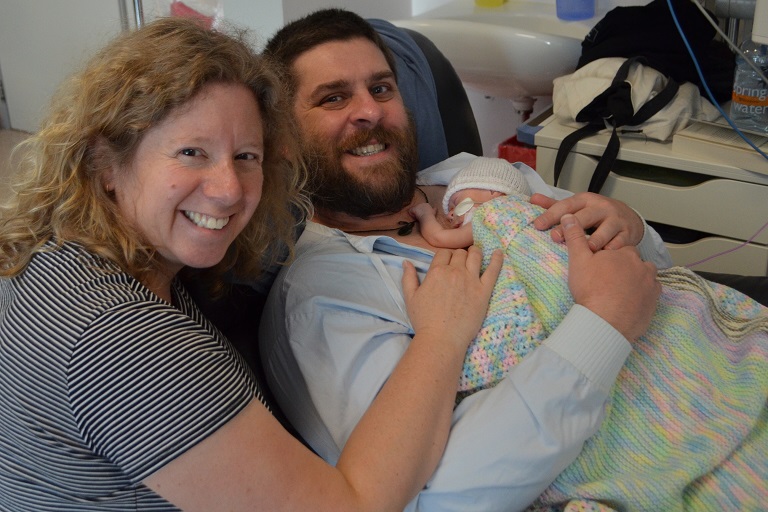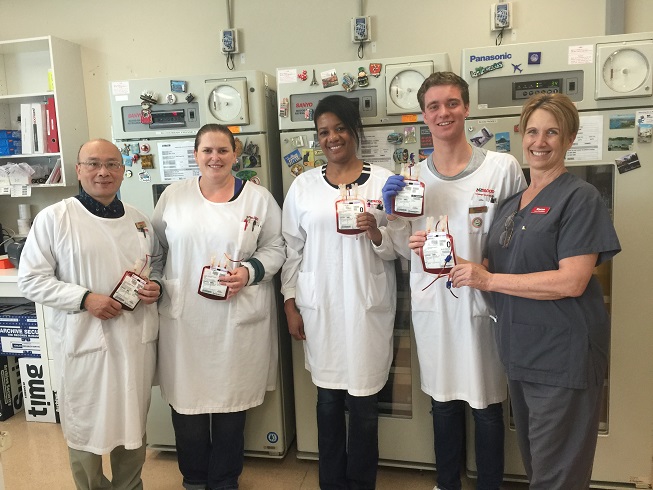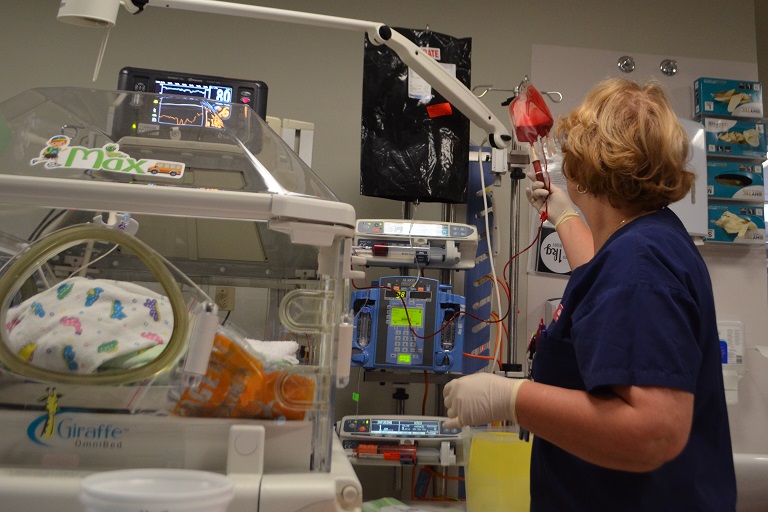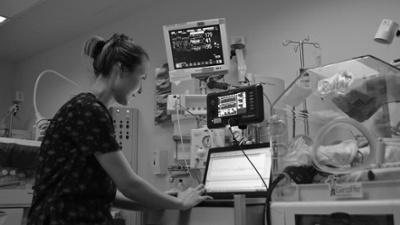NIMO-Rad is nearing completion
An update from Dr Maria Saito-Benz, who is a clinical research fellow at the University of Otago, Wellington
During their stay in the Neonatal Intensive Care Unit (NICU) premature babies can receive as many as ten blood transfusions for a common condition called ‘anaemia of prematurity’. In November 2017 a team of doctors, nurses and researchers in Wellington NICU set up a clinical trial called ‘NIMO-Rad’ to ask an important question:
Can we improve the effectiveness of blood transfusion for premature babies by changing the way blood products are prepared and stored?
As with any clinical trial the participation of the babies we look after and support from their parents and whānau is the key to our success. In addition, this study relied on a whole team of dedicated clinical and laboratory staff to ensure the study was completed successfully. Just under a year later this phase of the study is nearing completion and we would like to thank all the behind-the-scene heroes and heroines who made the NIMO-Rad study possible. Once the results are formally available we will be sharing them on this website.
 Babies and their Whānau
Babies and their Whānau
Many parents and whānau have supported us in studying not just one but many transfusion episodes knowing that this would mean hours of extra monitoring before and after blood transfusion. While the monitoring was completely safe it limited precious cuddles, bathing, or photo opportunities during family visits. We feel very privileged for the support given to the clinical and research team from participating whanau who wanted to encourage research and improve care of future premature babies. Their support is what kept the research team going!
 Blood Bank team
Blood Bank team
During the study period, our Blood Bank colleagues have provided us with a total of 64 specially prepared blood products for transfusion, not only during the weekdays but also at the weekend. They were also responsible for ensuring the integrity and validity of the results by using a complex process of randomisation. This ensure that we produce the best quality of research data that we possibly can.
NICU nursing staff By the end of the study, the clinical and research team in NICU will have performed a total of 192 days of extra monitoring using Near Infrared Spectroscopy in participating babies. Many Nurse Practitioners, Acting Charge Nurse Managers (ACNMs) and staff nurses have gone the extra mile to make sure that the data collection went smoothly during their babies blood transfusions.
By the end of the study, the clinical and research team in NICU will have performed a total of 192 days of extra monitoring using Near Infrared Spectroscopy in participating babies. Many Nurse Practitioners, Acting Charge Nurse Managers (ACNMs) and staff nurses have gone the extra mile to make sure that the data collection went smoothly during their babies blood transfusions.
The NIMO-Rad study is only one of many studies currently taking place in Wellington NICU. Clinical research is an integral part of providing quality medical care for NICU babies today and in the future. On behalf of the clinical and research team, we would like to thank everyone who have supported us in this endeavour, and we look forward to continue working with you all and sharing what we learn to continue making a brighter future for our precious NICU babies.
* Purchase of the NIRS sensors used in the NIMO-Rad study was made possible by generous support from The Little Miracles Trust.
More research information
New Zealand has a strong history of neonatal research and the NIMO-RAD study is just one of the many pieces of research currently underway.
To learn more about more of these studies, head to littlemiraclestrust.org.nz/research
About Dr Maria Saito Benz
 Dr Maria Saito-Benz is a doctor in neonatal medicine, currently working as a clinical research fellow at the University of Otago, Wellington. As part of her PhD study, she is leading a number of clinical trials in the Wellington Neonatal Intensive Care Unit (NICU).
Dr Maria Saito-Benz is a doctor in neonatal medicine, currently working as a clinical research fellow at the University of Otago, Wellington. As part of her PhD study, she is leading a number of clinical trials in the Wellington Neonatal Intensive Care Unit (NICU).
Maria completed her medical training at Oxford University in 2008, and has since worked in a number or neonatal units around the globe, including South of England, Kwazulu-Natal District in South Africa, and in Wellington. Last year, she was awarded the New Investigator Award for Neonatology for her work on the NIMO-AI (Near Infrared spectroscopy for Monitoring brain Oxygenation in Anaemic premature Infants) study. She is currently working on her PhD under the supervision of Dr Max Berry.
Preterm infants can often become anaemic. With adequate oxygen essential for normal brain growth and development, it is standard practice to use transfusions to improve tissue oxygenation, and restore cardio-respiratory instability. Dr Saito-Benz’s research is seeking to provide increased insight and a robust evidence base to establish transfusion thresholds for those working in the neonatal space.
One of Dr Saito-Benz’s favourite parts of her job is seeing the ‘NICU graduates’ and their families coming back to see the team, and receiving letters, emails and photos from families who have spent time in the neonatal intensive care unit. Outside of work, her 1-year-old son and 2 puppies keep her busy, along with travelling around the world to see families in the UK and Japan.
Maria Saito-Benz is just one of the incredible people who are committed to ‘making a difficult start to life that little bit easier.’
